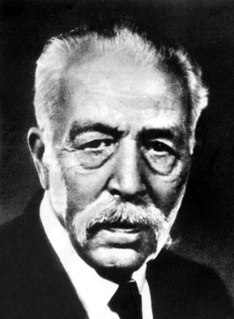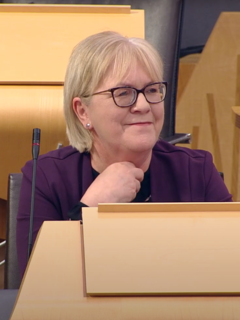A Quote by Leon Trotsky
The boycott of parliamentary institutions on the part of anarchists and semianarchists is dictated by a desire not to submit their weakness to a test on the part of the masses, thus preserving their right to an inactive hauteur which makes no difference to anybody. A revolutionary party can turn its back to a parliament only if it has set itself the immediate task of overthrowing the existing regime.
Related Quotes
The principle of Parliamentary sovereignty means neither more nor less than this, namely, that Parliament thus defined has, under the English constitution, the right to make or unmake any law whatever; and, further, that no person or body is recognised by the law of England as having a right to override or set aside the legislation of Parliament.
We owe to democracy, at least in part, the regime of discussion with which we live; we owe it to the principal modern liberties: those of thought, press and association. And the regime of free discussion is the only one which permits the ruling class to renew itself... which eliminates that class quasi-automatically when it no longer corresponds to the interests of the country.
The Regime has become so smug it can't tell the difference among the revolutionary, the innovative, or the merely various. The high command knows so little about the outside that if I came back with a fully equipped chemical laboratory and told them I'd found it in a cave, they'd probably believe that, so long as I brought it back piecemeal in my saddle bags, thus proving I hadn't known it was there beforehand.
Liberalism is extremely harmful in a revolutionary collective. It is a corrosive which eats away unity, undermines cohesion, causes apathy and creates dissension. It robs the revolutionary ranks of compact organization and strict discipline, prevents policies from being carried through and alienates the Party organizations from the masses which the Party leads. It is an extremely bad tendency.
Economics is not a science; it is a quasi-religion: part superstition, part mystique, part sentimentality. Bankers dream like other men, the only difference being that when their dreams turn to nightmares, we all lose sleep. There can be no trusting the muttering of any prelate when it comes to money.
What is it, in your opinion, to be a great nobleman? It is to be master of several objects that men covet, and thus to be able to satisfy the wants and the desires of many. It is these
wants and these desires that attract them towards you, and that make them submit to you: were it not for these, they would not even look at you; but they hope, by these services... to obtain
from you some part of the good which they desire, and of which they see that you have the disposal.
There should be some other provisions in the Constitution whereby if the Government is not functioning well, it can be dealt with. In a parliamentary democracy, this should be done only by Parliament. The prime minister should be answerable only to Parliament and it should only be Parliament that can install him or remove him.











































